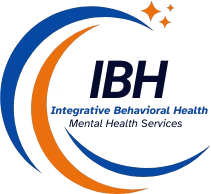You don’t have to please everyone. Learn how to say no with kindness and start honoring your own needs.
By Darrell Jamison, LCSW-C, MSW
If you feel guilty saying “no,” you’re not alone.
Many of us learned early on that being “nice” meant putting others first — even when it left us drained. Maybe you say yes to keep the peace, avoid conflict, or protect your relationships. Over time, though, constant people-pleasing can lead to resentment, burnout, and a quiet loss of self.
The good news? You can unlearn this pattern. With gentle awareness and practice, you can show up with kindness and boundaries — without feeling selfish or guilty.
Here’s how to begin.
1. Understand Why You People-Please
People-pleasing often starts as a survival skill. Many people develop it in childhood — learning that love, safety, or approval came from keeping others happy.
Over time, that protective strategy can become a reflex. You might feel anxious disappointing someone, or fear conflict will lead to rejection.
It helps to remember:
- You learned this behavior for a reason.
- It once helped you feel safe.
- You can now choose new ways to feel secure — ones that don’t require self-sacrifice.
Awareness is the first step toward change.
2. Notice the “Automatic Yes”
People-pleasers often say yes before they even realize they’re doing it. Try creating a small pause between a request and your answer.
You might say:
“Let me check and get back to you.”
“I need a moment to think about that.”
That pause gives your nervous system space to decide what you actually want, instead of reacting from guilt or habit.
3. Reframe Boundaries as Acts of Kindness
Boundaries aren’t about rejection — they’re about clarity and care. When you say no honestly, you make space for more authentic connection.
Imagine telling someone:
“I care about you, but I don’t have the capacity to do that right now.”
You’re not pushing them away — you’re choosing honesty over resentment. Healthy boundaries build trust, not distance.
4. Expect (and Welcome) Discomfort
If you’ve spent years pleasing others, saying no may feel awkward or even wrong at first. That’s normal.
Discomfort isn’t a sign you’re doing something bad — it’s a sign you’re doing something different. Over time, that tension softens, and what once felt uncomfortable begins to feel freeing.
When guilt comes up, remind yourself:
“It’s okay to take care of myself. I can be kind and still have limits.”
5. Practice Saying No with Kindness
You can decline without apology or guilt. Here are a few examples:
- “I appreciate you thinking of me, but I can’t take that on right now.”
- “That sounds great, but I need to rest this weekend.”
- “I want to help, but I don’t have the capacity to do it well.”
Kind firmness builds self-trust — and teaches others that your “yes” truly means yes.
6. Reconnect with Your Own Needs
People-pleasing often disconnects you from what you want. Try asking yourself throughout the day:
- “What do I need right now?”
- “What would make me feel cared for?”
- “Am I saying yes to please, or because I genuinely want to?”
Tuning back into your own needs helps you make choices from self-awareness, not obligation.
7. Seek Support if It Feels Hard to Change
If people-pleasing runs deep, working with a therapist can help you explore its roots and learn healthier patterns.
Approaches that may help include:
- Cognitive Behavioral Therapy (CBT): To challenge guilt and anxious thoughts.
- Attachment-based therapy: To understand how early experiences shape your boundaries today.
Therapy can help you feel safer expressing your truth — and remind you that your worth isn’t defined by how much you give.
Final Thoughts
Breaking free from people-pleasing doesn’t mean becoming selfish or distant. It means learning to love yourself with the same compassion you offer everyone else.
When you honor your own needs, you show up more authentically in every relationship — grounded, present, and real.
You deserve that kind of freedom.
Recommended Reads
- Set Boundaries, Find Peace by Nedra Glover Tawwab
- The Disease to Please by Dr. Harriet B. Braiker
- When It’s Never About You by Dr. Ilene S. Cohen
- Codependent No More by Melody Beattie
If this resonates, you’re not alone.
IBH is here to help you build healthier boundaries and deepen your emotional well-being.
Reach out today to explore therapy and support options.
📞 Call us: 443-288-0098
📅 Schedule online: www.ibhteam.com
